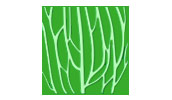
English: Hairy spurge, Garden spurge, Pill pod sandman, Asthma plant, Snakeweed.
Sanscrit: Barokheruie, Chara.
Hindi: Baridhudi, Dudhghas, Dudhi
Malayalam: Chithirapala-ചിത്തിരപ്പാല, Murikooti-മുറികൂട്ടി, Nilappala–നിലപ്പാല.
Tamil: Amman-pacharici–அம்மான்பச்சரிசி
Asthma weed – Euphorbia Hirta is an erect, slender, sometimes prostrate, annual herb that grows up to 60 cm long, and it produces a white sap or latex that is sticky. The leaves are simple, brownish-green, elliptical, hairy on both surfaces, toothed margin, and arranged in opposite pairs on the stem, apex obtuse-acute, the stems are hispid, also hairy, and produce a white sap. There are stipules present. Flowers are uni-sexual and found in axillary cymes at leaf axils. Fruit is like a capsule, which is tiny, and four-sided with red seeds. the roots are taproots, brown or white in color.
Whole plant, latex
| Shape-Lance | Margin-Dentated | Venation-Longitudinal |
 |
 |
 |
Ability to increase platelet level, to cure respiratory, bronchial asthma and laryngeal spasms, amoebic dysentery, nausea and vomiting, worm infestations in children, jaundice, pimples, tumors, gonorrhea, and digestive problems.
Anti-bacterial (it acts against the bacteria such as pathogenic bacteria, Helicopter pylori, and Plasmodium), anti-viral (Dengue fever).
Applying the latex extracted from the plant to fresh wounds can facilitate quick healing. This natural remedy is also employed in the treatment of conditions such as rashes, warts, swellings, and chapped lips.
The decoction of the whole plant is used in the treatment of Dengue fever
Note: Regular consumption of the plant may cause infertility (reduces the sperm count).
Tags:
#Ayurvedic herbs #Medicinal plants in Ayurveda #Ayurvedic remedies #Herbal medicine in Ayurveda #Traditional Indian medicine #Ayurvedic plant benefits #Ayurvedic plant properties #Ayurvedic plant uses #Ayurvedic healing plants #Ayurvedic plant encyclopedia #Ayurvedic plant database #Ayurvedic plant profiles #Herbal remedies in Ayurveda #Ayurvedic plant guide #Ayurvedic plant identification #Ayurvedic plant classification #Ayurvedic plant preparations #Ayurvedic plant research #Ayurvedic plant pharmacology #Ayurvedic plant monographs
Copy rights 2013-2024 Medicinal Plants India : All rights reserved.